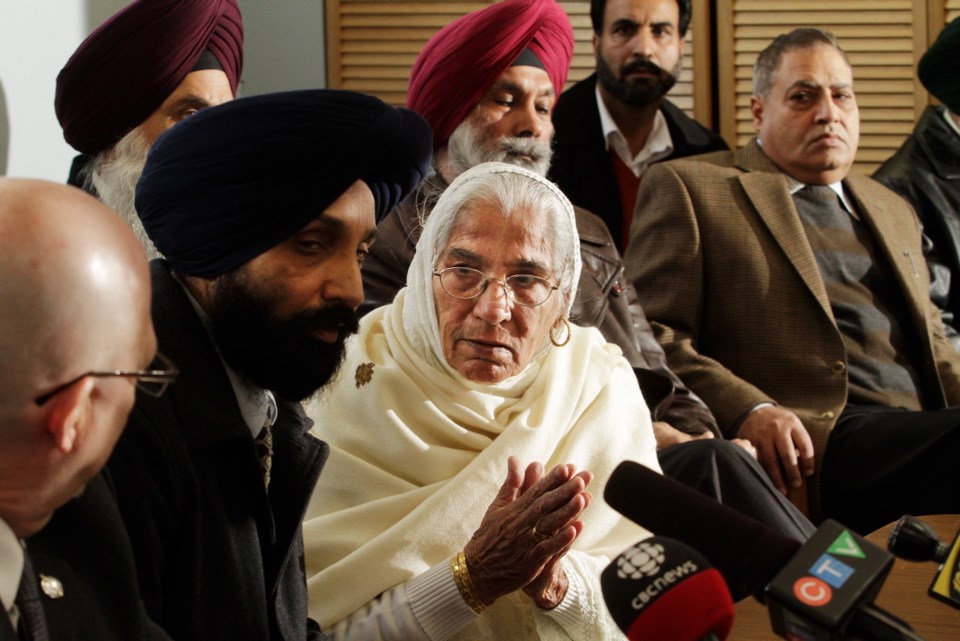It’s going to be an especially happy Mother’s Day for Saanich resident Surjit Bhandal and the two nephews she raised since birth. Bhandal, 83, received word Friday that Citizenship and Immigration Canada will allow her to stay in Canada on humanitarian and compassionate grounds — ending five years of rejection.
“She feels, very, very good, finally,” said nephew Jasminder Bhandal, 45, a Saanich builder. “She was very upset before, so much tension was a burden on her health.” The aunt he calls “mom” is frail, has no family in India and has been fighting to stay since she first visited Langford in 2008.
Esquimalt Juan de Fuca MP Randall Garrison, whose office has championed her cause and put close to 100 hours into the case, said only a few routine procedures remain before Surjit Bhandal receives permanent resident status.
Garrison, who plans to drop in on her on Mother’s Day, said the decision sets a precedent in keeping with Canadian values: When federal adjudicators deal with other cases involving family members who don’t meet the “strict legal definition” of a family, those individuals can still qualify to stay.
Canadian law does not consider aunts close enough family members for re-unification, but in this case, Surjit raised the two boys from birth because their mother was disabled. Although she’s their mother’s sister-in-law, they call Surjit mother. But because she was not their birth mother, the nephews could not sponsor her for permanent residence status.
“We don’t actually need a change to the law or the regulations,” said Garrison, an NDP MP. “We just need an understanding of diverse families and this is a precedent. … My only regret is that it took the Conservatives so long to come to the right conclusion.”
Jasminder said he is thankful not only for Garrison’s help, but for the churches and the rest of the community that supported the family, ultimately sending 5,000 letters and emails to Ottawa.
He recently completed a new house in Saanich where Surjit lives, while his birth mother travels back and forth from the Lower Mainland. He estimated his legal bills in the case at $40,000.
Garrison said he only wavered once in his conviction that the Bhandals would prevail, just prior to the December 2012 launch of public and legal appeals. But when he saw the turnout of Greater Victoria community and religious leaders, and the flow of letters and emails to Ottawa, he was convinced Canadian values would “shine through in the end.”
Meanwhile, other people in similar situations have already been forced to leave, he added.
“Unfortunately, Conservative immigration policy has leaned away from family reunification … and it’s put a heavier reliance on temporary foreign workers and other categories. To me, family reunification ought to be first.”



